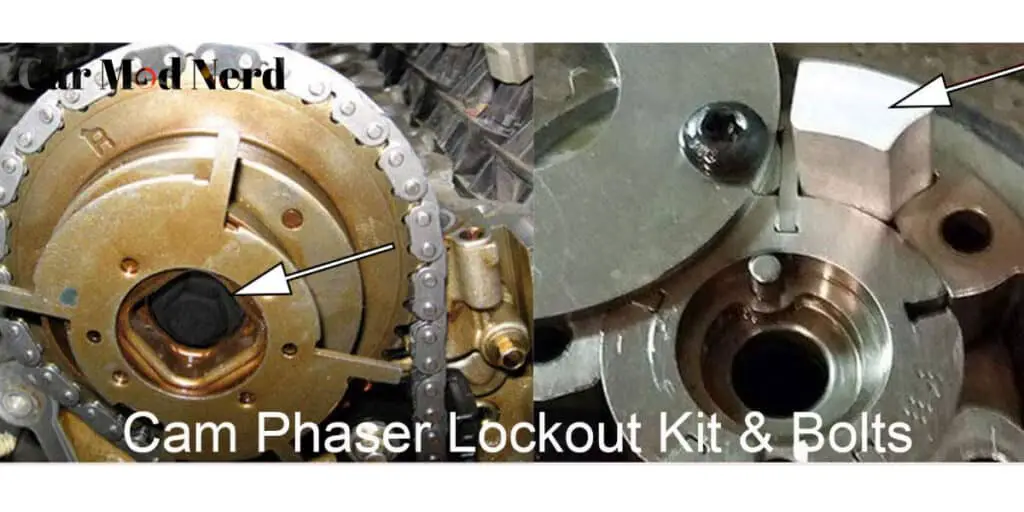Why does my car ac smell like vinegar? Feeling scared? One major cause of the sour vinegar-like smell is the aggregation of mold due to trapped moisture. Overuse and minimal use of your vehicle may be responsible for moisture and mildew issues. Besides, The air conditioner or vents are likely to contain some form of accumulation of natural substances that can ferment and form alcohol-like materials as they decay, causing bacteria buildup and producing an acidic vinegar like smell. Other causes include gas leaks, drain tube leaks, or air conditioning system malfunction.
The best way to remove the acidic vinegar smell in your vehicle’s AC is by trying specialized automotive HVAC antifungal spray. If that doesn’t work then take it to a trustworthy mechanic. Taking the car to a professional eliminates guesswork and mitigates the risk involved if you try to fix it.
Next time you take your car for repair, don’t forget to ask for a free loaner car. Here’s how to get a courtesy car.
Why Does My Car Ac Smell Like Vinegar
Are you getting in your vehicle, cranking up the air conditioner, and immediately getting a heavy vinegar whiff? It is not only startling but very unpleasant for many people. Some car companies have discovered innovations that help the vehicle detect different smells and adjust to make passengers more comfortable.
If the scent of vinegar is evident while you’re using your air conditioner, that means that the issue is with the AC. It can be due to several reasons like:
- Mold And Mildew
- Decaying Material
- Ozone
- Battery Acid Leak
- Fungus
- Bad Air Filter
Are you using the right coolant for your car? Here’s how to check coolant level.
Mold and Mildew
Air conditioners produce a large amount of condensation. If it does not dry entirely, it will gradually transform into mold and mildew. I keep a can of automotive HVAC duct cleaner in my car to remove mold in car vents.
I use this AC stop leak solution and it works almost all the time.
Decaying Material
You might also have leaves in or near your air conditioner or other natural material piling up. The air conditioner can blast the smell of vinegar into the vehicle as it decays. That’s another prominent reason why your car ac smells sour.
Ozone
It may be released by an electronic air conditioner engine, as a result you start getting sour smell from car ac when mixed with decaying material or mildew.
Battery Acid Leak
Leaking battery acid has a strong sulfur odor that can sometimes be perceived as vinegar or smells sour.
Fungus
The fungus may be growing in the vents of the air conditioner if the ducts are suitable for the organisms’ growth. Spray antifungal on you car ac vent to keep it clean.
Bad Air Filter
Finally, the car air conditioner smells may mean that it is time to change the air conditioner filter.
Now you have it, the answer for why does my car smell like vinegar. Let’s see how to get rid of vinegar smell in car.
How To Get Rid Of Vinegar Smell In Car
Car ac smells like vinegar fix shouldn’t be hard. A specialized automotive HVAC vent cleaning spray should do the trick for minor vinegar smell issues.
Find the Source Of Vinegar Smell In Car
Getting rid of a smelly air conditioner can be challenging when you can’t locate the primary source. Finding the source of the smell could also tell you if a minor cleaning process could help or if the air filter needs replacing. I have listed a few causes above and it could be one or more of those sources. Or maybe the smell is coming from other sources like car seat covers. Read how to clean car seat covers here.
Clean the Vents
Usually, you can get rid of the smell using an interior air conditioner cleaner. But, I prefer specialized cleaners designed for automotive HVAC systems. There are many cleaning products that are effective in removing foul odors and fixing the problem of the smell temporarily.
It is necessary to remember that you still have to deal with the root cause of the problem. It may be particularly harmful if the odor is hazardous. For health and safety purposes, you ought to be cautious.
See a Professional
One of the best options would be to get a mechanic to tackle the issue. To see how he can get rid of the problem, the technician would most likely change the air filter.
Suppose the vinegar odor complaint is not eliminated by a vent and duct cleaner mist. In that case, it is safer to get the air conditioning device tested by a specialist. Your technician will rule it out and suggest other causes of the issue if your air conditioner is not responsible for the smell.
Although many people feel relaxed swapping an air conditioner filter out, many do not know what to do if replacing the filter does not fix it. Taking the vehicle to a professional should solve the problem permanently.
Best Car Air Conditioning Cleaner
- Aerosol form
- Odor neutralizer
- Specially formulated for automotive HVAC systems
- Cleans by removing light dirt in ductwork and dirt and dust that sits on vent surfaces
Car AC Smells Risks
In certain situations, the air conditioner odor may not be harmful to your wellbeing and is more annoying than dangerous while driving. A study carried out on drivers who were subjected to different car ac smells showed that bad odors affect the concentration of the driver.
However, since few smells may pose a danger to your wellbeing, there are certain odors you’ll want to look out for. There could be a battery acid leak in your car if your air conditioning produces an odor that can be characterized as rotten waste.
It may be harmful because it could contribute to asphyxia from inhaling so much toxic chemicals. It can also be a fire hazard because exposure to fire, probably from the cigarette lighter, can trigger flames in your car or even an explosion. Unless the problem is fixed, it is necessary to avoid using the AC.
The smell of vinegar is another odor that you should be vigilant about because it could signal that mold is growing inside your air conditioning device. Mold does not normally pose any acute health effects, though minor symptoms like wheezing, coughing, and skin rashes are typical symptoms of exposure to mold spores. Once you have established that you have a mold problem, you may want to get the problem fixed as soon as possible because long-term mold exposure can be lethal.
Once you have established that you have a mold problem, since long-term mildew exposure can be lethal, you may want to get the problem fixed as soon as possible. Molds create mycotoxins, and exposure to these toxins will weaken your immune system and even trigger cancer.
Car Air Conditioner Smells And Their Meaning
Car AC Smells Like Mildew
The most prevalent sign in AC systems is potentially an air conditioner smelling like mildew or mold. There is a lot of condensation inside the device while the air conditioning is working. It will leak through the ducts and produce mold when the moisture does not drain properly.
Identifying where mold growth is and having it washed up can fix the dilemma. An AC repair specialist has the skills to tackle the issue and make sure it doesn’t happen again.
Smell of Exhaust Fumes
Even in systems not operated by petrol, there could be a smell of exhaust fumes if fluids leak from critical parts. Get the device properly tested to escape a hazardous scenario. Significant volumes of poisonous gases, varying in chemical content than normal, a liquid form, may be emitted by burning oil and other fluids. These particles may be harmful to your body, affecting oxygen levels and contributing to several health problems.
Rotten Egg Smell
The smell of rotten eggs or sulfur more definitely suggests a gas leak as long as there are no rotten eggs in your car. While gas may be odorless on its own, the smell is significant and cannot be missed.
The rotten egg smell could also be due to a battery acid leak. Do not take this lightly, and make sure a professional performs urgent testing and servicing. Although exposure to low levels is not harmful to your wellbeing, high levels decrease blood oxygen and contribute to loss of consciousness.
Gas is also very flammable and toxic and can trigger various casualties. If you detect this scent, quickly open your car’s windows, turn off the AC and call a professional.
Smell of Gunpowder
A distinct, gunpowder-like fragrance can be attributed to a fried circuit board or fan engine and is similar to burning smells. With certain smells posing similar risks, calling for a competent inspection before using the AC again is still a smart move.
Electrical and Burning Smells
Electrical odors may signal a technical fault with your AC fan or compressor, wiring problems, or damage to an electrical part. Prolonged exposure to these smells is not safe for you and your family.
Electrical faults will produce a burning odor that will smell electric and dusty the first couple of occasions the machine kicks on. Still, the smell might dissipate after a few minutes of driving. If it persists, call a skilled AC technician to figure out the issue and make fixes.
Usually, an electrical odor inside the motor or the wiring is a concern. Attempting to repair all of these things by yourself will lead to significant injury.
Smell of Chemicals
It is safer to be careful than sorry when it comes to harmful chemicals. Find the air conditioner that smells like paint thinner or other chemicals. It would be best if you got a professional to check it out.
Several fluids are used inside the air conditioning device that may result in a range of chemical odors with system breakdown, rendering prompt AC repair advisable.
What Are The Signs Of Bad Air Filters In Car AC?
The AC filter functions to eliminate pollutants from the automobile’s air conditioning device. They remove contaminants such as dust, soil, and allergens, but they also get dusty and clogged from use and need to be replaced regularly. If an air filter has been overly polluted and needs to be removed, it will show a few signs:
Reduced Airflow from the Vents
Reduced airflow is one of the most frequent signs suggesting an air filter needs repair. Less air can move through when the filter is polluted or clogged, and the air that does pass through takes more work than usual.
It would not only lead the AC device to perform less successfully, but it will also cause the engine to function less efficiently.
Increased Cabin Dust and Allergens
Another sign that you need to replace the cabin air filter is that, if you are allergic, you may notice an increased amount of dust and possible allergens in the cabin. The air filter can no longer filter air efficiently when it is clogged.
The air that passes through may not be adequately filtered. It can also indicate that somehow the AC filter may have been damaged or torn and allows unfiltered air to enter the cabin.
Smelly Car Air Conditioner FAQ
The growth of mold in your air vents is undoubtedly one of the causes of the distinct vinegar smell in your car air conditioner when you switch it on. The development of bacteria will create smells of mildew in your car and is the most frequent source of a vinegary scent.
Try car AC vent and duct cleaner before getting professional help. Here’s what I use on a regular basis to clean my ac vent and duct.
Fungus and other microorganisms may also begin to develop as the vehicle gets older. With simple car cleaning products or sprays, you can get rid of the smell. You should ultimately take your vehicle to a professional in case there are other causes of the smell.
A specialist may change the air filter or figure out another cause of the problem and help you deal with it. I believe you get the answer to your question, why does my car ac smell like vinegar? Here’s my blog on cam phaser advantages and disadvantages. You’ll be amazed. Do you own an f150? Here’s what you need to know about your f150. Struggling with which engine oil is better or which motor oil grade should you use? Read my post on 5w30 vs 5w20 and Castrol vas Pennzoil. Let me know what do you think about this best oil for Ford EcoBoost. Read how to measure truck bed for cover here and how to keep luggage dry on truck bed here.






